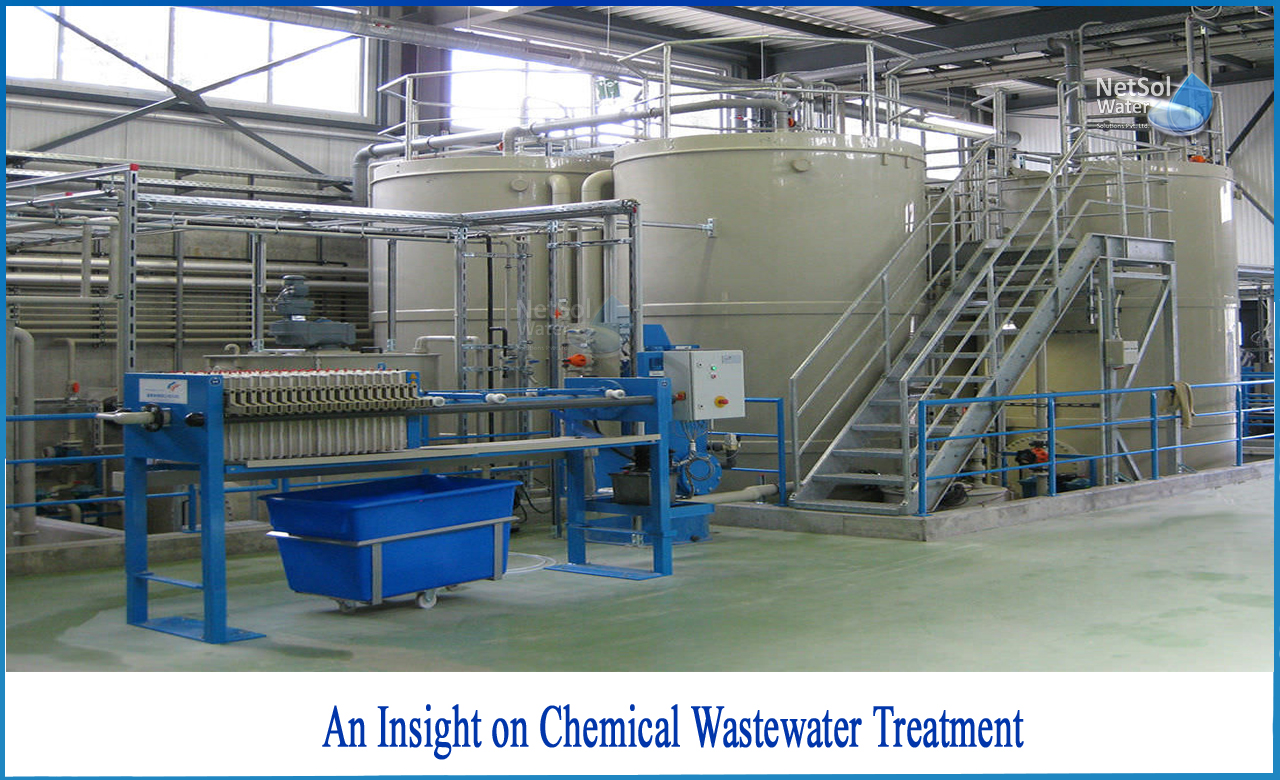Overview
Wastewater originates from homes, businesses, industry, in addition to drains and rainwater runoff. Generally, wastewater includes around 99.9% of water via “way of means of weight” with the ultimate 0.1% representing dissolved solids or different suspended materials. This also additionally encompass excrement, detergents from washing garments and dishes, meals scraps, grease, oils, plastics, salts, sand, grit, and heavy metals.
Some wastewaters from commercial or agricultural procedures might also incorporate chemical substances that can be risky to the surroundings or to public fitness and which want to be neutralized or eliminated from the water earlier than it could be correctly reintroduced into the surroundings. Wastewater remedy includes some of ranges related to procedures which might be mechanical (bodily) based, organic based, chemical- based, in addition to membrane (filtration) procedures.
What is chemical wastewater treatment?
Chemicals are used all throughout wastewater remedies in an array of procedures to expedite disinfection. These chemical procedures, which set off chemical reactions, are known as chemical unit procedures and are used along organic and bodily cleansing procedures to obtain diverse water standards.
Specialized chemical substances which include chlorine, hydrogen peroxide, sodium chlorite, and sodium hypochlorite (bleach) act as dealers that disinfect, sanitize, and help within side the purification of wastewater at remedy facilities.
There are numerous wonderful chemical unit procedures, together with chemical coagulation, chemical precipitation, chemical oxidation, and superior oxidation, ion change, and chemical neutralization and stabilization, which may be carried out to wastewater all through cleansing.
Neutralization
Neutralization includes the addition of chemical substances for the reason of fixing the pH of the wastewater. This includes the addition of acids (to decrease pH) or alkalis (to elevate pH) relying at the preliminary pH of the influent.
Chemical Precipitation
Chemical precipitation is the maximum used approach for eliminating dissolved metals from wastewater containing poisonous metals. To convert the dissolved metals into strong particle shape, a precipitation reagent is brought to the mixture. In hydroxide precipitation, a usually used chemical precipitation system, calcium or sodium hydroxide is used because it is the reagent to create strong metallic hydroxides. However, it could be tough to create hydroxides from dissolved metallic debris in wastewater due to the fact that many wastewater answers incorporate combined metals.
Chemical Coagulation
This chemical system includes destabilizing wastewater debris to form flocs.
Chemical Oxidation/Reduction and Advanced Oxidation
With the advent of an oxidizing agent all through chemical oxidation, electrons pass from the oxidant to the pollutants in wastewater. The unwanted elements then go through structural modification. Alkaline chlorination makes use of chlorine as an oxidant in opposition to cyanide. However, alkaline chlorination as a chemical oxidation system can result in the advent of poisonous chlorinated compounds, and extra steps can be required.
Advanced oxidation can assist put off any natural compounds which might be produced as a by-product of chemical oxidation, via procedures which includes steam stripping, air stripping, or activated carbon adsorption.
Redox reactions are used for the remedy of potable water. Chlorinated hydrocarbons and insecticides may be efficiently eliminated from wastewater via means of the usage of ozone and hydrogen peroxide treatments. Advanced oxidation procedures also are used for the degradation of drug materials like antibiotics or cytostatic pills that is probably located inside the water.
Ion Exchange
An ion exchange system, just like the RO system, may be used to treat the water. Calcium and magnesium ions result in water hardness. They are treated with NaCl to get rid of hardness.
Adsorption and Chemisorption
Adsorption is a system wherein materials collect at the surfaces of a strong frame because of the Van Der Waal forces. This system is a bodily one – whilst the equal factor takes place due to a chemical bond, the system is referred to as chemisorption.
In wastewater, activated carbons are frequently used to bind to soluble factors of the water which havenot been eliminated.
Precipitation
Chemical precipitation adds appropriate chemicals to the wastewater that can convert dissolved substances into sparingly soluble substances. This conversion causes the material to settle and reduce the concentration of the material. Heavy metals can precipitate as metal hydroxides and anions, such as salts of calcium, iron and aluminium.
Aggregation
Agglomeration uses flocculantsto remove very fine particles from wastewater. These particles usually do not accumulate as large aggregates because they have the same charge due to the electrical repulsive force.
Chemical stabilization
This chemical wastewater treatment process works like chemical oxidation. Sludge is treated in large quantities with certain oxidizing agents such as chlorine. The introduction of oxidants slows the rate of biological growth in the sludge and also helps deodorize the mixture. The water is then extracted from the sludge. Hydrogen peroxide can also be used as an oxidizer and may be a cheaper option.
Summary
Treating wastewater for use or recycling and reuse is a fusion of several different technologies, including specialty chemicals, mechanical filtration products, purification systems, purpose-designed equipment, and wastewater treatment services. It represents and provides a satisfying solution to water purification and hygiene challenges.
This article provided an overview of wastewater treatment processes with a focus on chemical wastewater treatment processes.
For more topics, see the additional guide or the Netsol blogs. We have expertise in providing chemical treatment to all your STPs, WTPs and WWTPs and make your facility sustainable.
Netsol Water is Greater Noida-based leading water & wastewater treatment plant manufacturer. We are industry's most demanding company based on client review and work quality. We are known as best commercial RO plant manufacturers, industrial RO plant manufacturer, sewage treatment plant manufacturer, Water Softener Plant Manufacturers and effluent treatment plant manufacturers. Apart from this 24x7 customer support is our USP. Call on +91-9650608473, or write us at enquiry@netsolwater.com for any support, inquiry or product-purchase related query.



